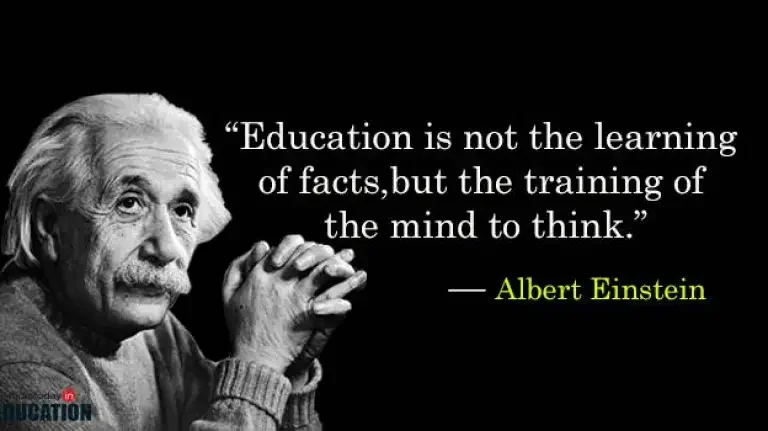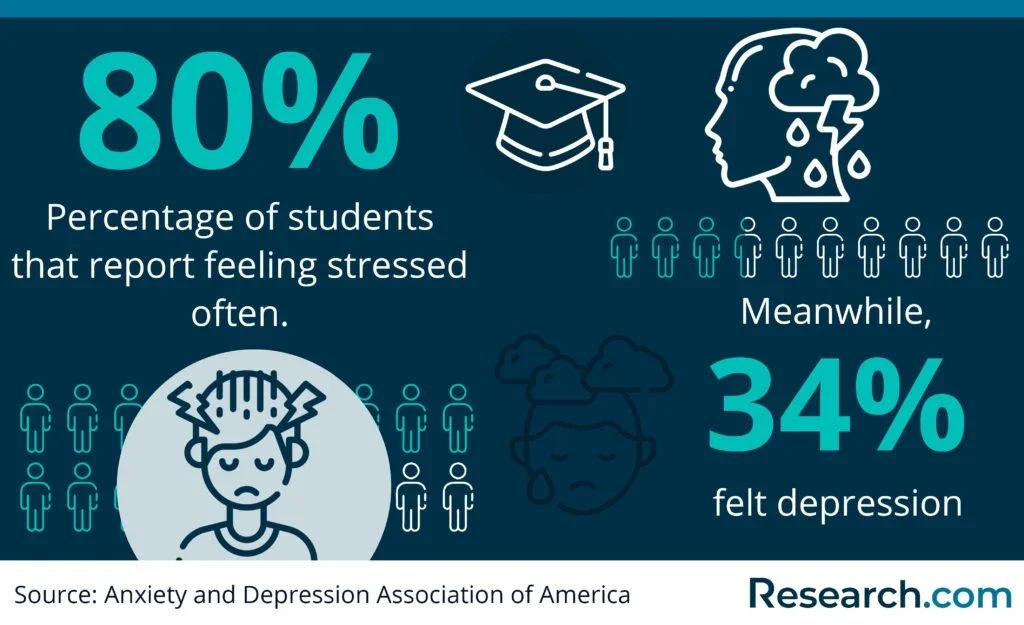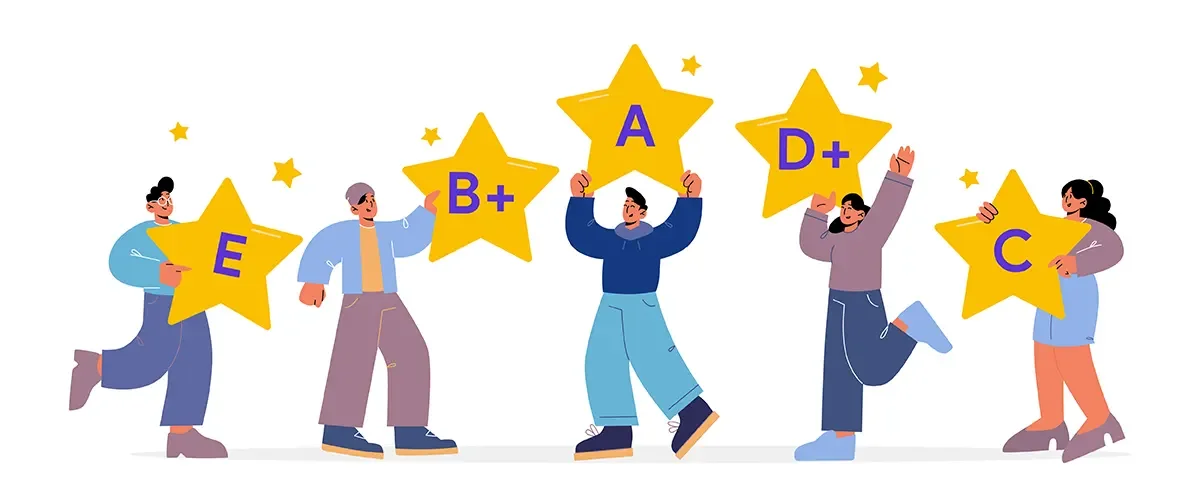“Education is not the learning of facts, but the training of the mind to think.” – Albert Einstein

Truer words have never been said. Einstein’s wisdom reminds us that education isn’t a mere data dump; it’s about nurturing a thoughtful spirit that lightens up the bulb of curiosity in a child’s mind. Grades alone don’t define the true essence of Education, it’s about knowledge and wisdom too that comes from beyond the pages of the books.
As we delve into the complexities of education assessment, it becomes evident that a mere focus on grades undermines the holistic growth of students, hindering their preparation for the dynamic challenges of the real world.

The Current Landscape of the Education Assessment system:

In the current education landscape, the assessment system predominantly revolves around the traditional report card, a numerical reflection of a student’s academic performance. This system, however, falls short in providing a holistic understanding of a child’s development and often paints an incomplete picture, neglecting crucial factors in a child’s development.
These grades, determined by standardized testing and assignments, streamlines the evaluation process. Students are reduced to statistical representations, leaving unexplored the diverse dimensions of their own capabilities and potential and it becomes apparent that grades alone do not adequately capture the richness of a child’s intellectual, emotional, and social development.
Recommended Reading: Personality Development for Kids – Why Is It Important?
Limitations of the Grading System:
While grades provide a snapshot of academic progress, they fall short in assessing the holistic development of a child. The grading system often overlooks vital components of development, such as creativity, critical thinking, and emotional intelligence. A student excelling in memorization may lack the practical skills required for real-world application.
1. Fails to provide Holistic Development Oversight:
Grades often fail to capture the holistic development of a child, neglecting crucial aspects like creativity, critical thinking, and emotional intelligence.
2. Gap in Practical Application:
The system may overlook the practical application of knowledge, leading to a gap between academic success and the ability to apply acquired skills in real-world scenarios.
3. Narrow Definition of Success:
Focussing on grades leads to a narrow definition of success, potentially undervaluing skills and qualities essential for success beyond academia.
4. Potential for Misrepresentation:
There is a risk of misrepresentation, as high grades may not necessarily correlate with a well-rounded and adaptable individual.
5. Call for Refined Assessment:
The Report Card system highlights the necessity for a more nuanced assessment paradigm that recognizes and values diverse forms of intelligence and growth.
Recommended Reading: Enrichment activities for kids: Encourage Learning And Personal Development
The Pressure of Good Grades

The relentless pursuit of high grades has given rise to an environment where students find themselves entangled in a web of expectations. The societal and familial pressures to achieve good grades create a high-stakes atmosphere, contributing to heightened anxiety and stress levels among students. This undue pressure not only affects their mental well-being but also fosters an environment where the love for learning is overshadowed by the pursuit of numerical validation.
1. External Expectations:
Societal and familial expectations create a considerable pressure for students to achieve high grades, influencing their sense of self-worth and success.
2. Mental Health Implications:
The pursuit of good grades contributes to heightened stress and anxiety levels, impacting the mental health and overall well-being of students.
3. Impact on Love for Learning:
The intense focus on grades can erode the inherent love for learning, turning the educational journey into a relentless pursuit of numerical success.
4. Need for Balanced Expectations:
There is a growing awareness of the need for balanced expectations that prioritize overall well-being and foster a healthy relationship with learning.
Bookish Knowledge vs. Real-Life Experiences:

The current education system’s inclination towards bookish knowledge over real-life experiences poses a significant challenge. Emphasizing theoretical understanding often neglects the application of knowledge in practical scenarios. Students may find themselves excelling in rote memorization but struggling when faced with situations demanding critical thinking and problem-solving skills beyond the scope of textbooks.
1. Emphasis on Theoretical Understanding Only:
The education system often prioritizes theoretical understanding over practical skills, potentially leaving students ill-equipped for real-world challenges.
2. Rote Memorization vs. Practical Application:
Students may excel in rote memorization but struggle when faced with tasks requiring critical thinking and problem-solving beyond the scope of textbooks.
3. Imbalance in Skill Development:
The current system may contribute to an imbalance in skill development, favoring theoretical knowledge at the expense of practical experiences.
4. Hinders Preparation for Real-World Challenges:
The disparity highlights the importance of preparing students for real-world challenges by bridging the gap between theoretical knowledge and practical application.
5. Need for a Balanced Approach:
There is a recognized need for a balanced approach that integrates theoretical understanding with practical experiences to ensure a more comprehensive and applicable education.
Other Aspects of Assessment:
A paradigm shift in assessment requires recognizing and valuing dimensions beyond grades. Holistic assessment encompasses a child’s social skills, emotional resilience, and achievements beyond the academic realm. Continuous assessments, self-reflection exercises, and peer evaluations emerge as invaluable tools in gaining a comprehensive understanding of a student’s progress. Teachers, serving as mentors, play a pivotal role in guiding students beyond the confines of grades, fostering individual strengths, and embracing a more holistic perspective.
Recommended reading: Standardized Testing: Does It Truly Measure Knowledge, Skills, and Abilities?
Conclusion:
In conclusion, the current educational assessment landscape, centered on grades, falls short in capturing the richness of a child’s multifaceted development. As we navigate the complexities of this system, it becomes evident that a recalibration is imperative. The pressure for good grades, the emphasis on bookish knowledge, and the limitations of the grading system all underscore the need for a more holistic approach. By recognizing and valuing diverse dimensions of assessment, incorporating continuous evaluations, and fostering a supportive environment where teachers serve as mentors, we can redefine success and equip students not just academically but with the essential skills for a flourishing future.
Moonpreneur is dedicated to transforming conventional education, preparing the next generation with comprehensive learning experiences. Our Innovator Program equips students with vital skills in AI/ML, Robotics, Coding, Game Development, and App Development, fostering entrepreneurship through hands-on learning. This initiative aims to cultivate the workforce of tomorrow by integrating innovative technologies and practical skills in school curriculums.
Register for a 60-minute free workshop today!

























